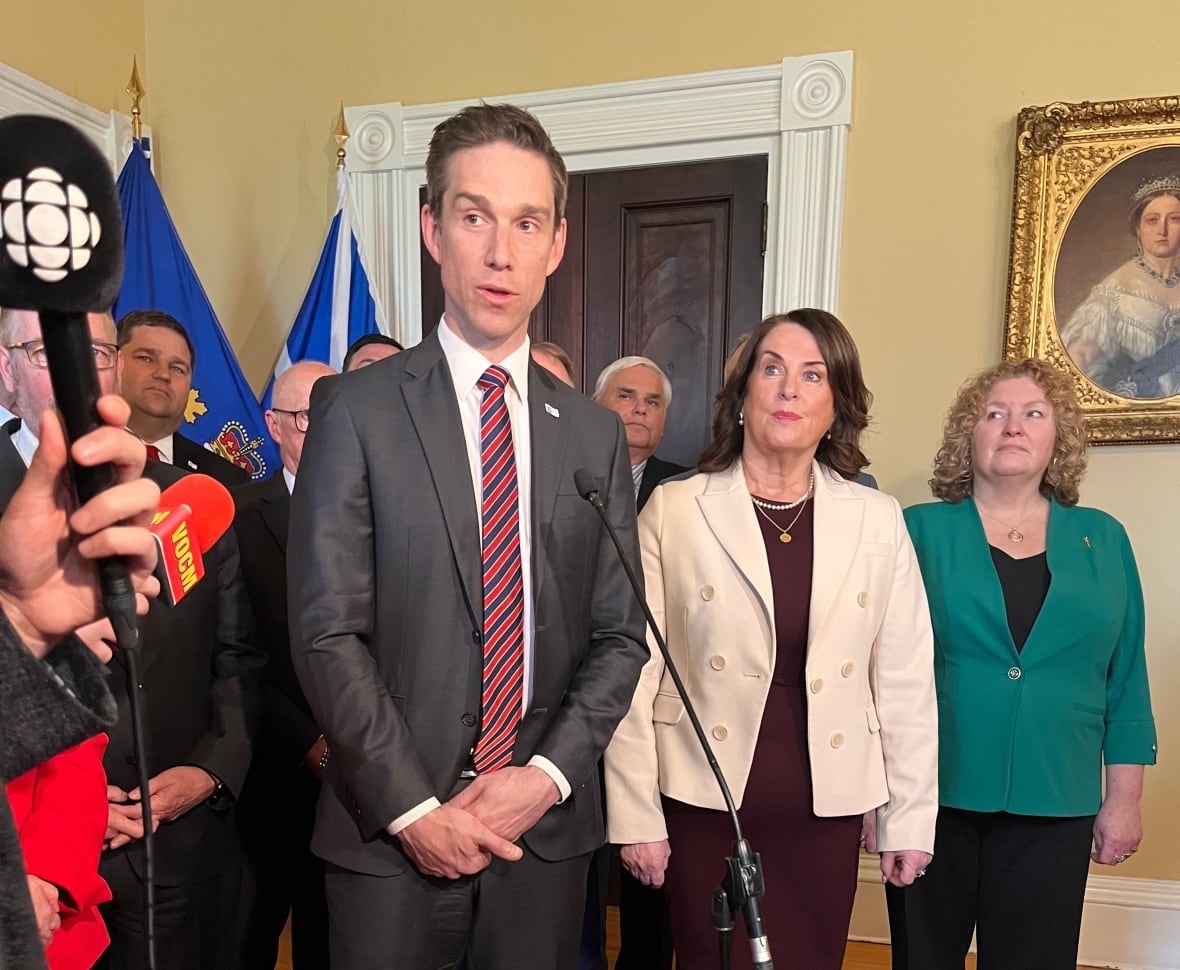Exodus of N.L. cabinet ministers challenges Liberal Party momentum, prof says
Six Liberal cabinet ministers, one MHA will not seek re-election

One by one, veteran Liberal Party politicians are bowing out of the campaign trail ahead of Newfoundland and Labrador's upcoming fall provincial election.
The trail of resignations started in May 2024 when former St. John's South MHA Tom Osborne resigned from provincial politics after a 28-year career.
Then, in September, former energy minister Andrew Parsons announced he wouldn't be running in the 2025 provincial election after a 14-year political career.
He formally resigned in May 2025 following the change in the provincial Liberal leadership.
Parsons' resignation followed that of former premier Andrew Furey, who stepped down in February after serving for four and a half years. Furey has since returned to working as an orthopedic surgeon in St. John's, but has not ruled out a future in politics.
Furey's resignation triggered a Liberal leadership race in March, which saw Windsor-Lake MHA John Hogan become premier in May.
Five cabinet ministers out
A formal provincial election must take place by October 2025. With the six-week campaign trail getting closer, five of Hogan's cabinet ministers, and one backbencher, have decided not to seek re-election.
Seniors Minister John Abbott was the first to tender his resignation from provincial politics. Elected in 2021 as MHA for St. John's East-Quidi Vidi, Abbott attempted to become the Liberal leader twice. First up against Furey, then Hogan. He chose to resign at the end of the summer following a lawsuit over the controverted 2021 provincial election.
Then on July 7, Finance Minister and Deputy Premier Siobhan Coady announced that she will not seek re-election after spending a decade in provincial politics, and three years in federal politics between 2008 and 2011.

A week later, on Monday, three cabinet ministers announced that they will also not seek re-election after spending a decade in provincial politics.
The first was Industry, Energy, and Technology Minister Steve Crocker. Shortly after came Justice and Public Safety Minister John Haggie, and then Environment and Climate Change Minister Scott Reid.
Lake Melville MHA Perry Trimper is also moving on. He announced his decision to leave politics in May.
Liberal momentum challenged
Political science professor Alex Marland told CBC the exodus of long-time Liberal politicians in the province is normal and healthy, as it paves the way for new faces in the House of Assembly.
"Politics is draining," he said. "You just need energy."
But with ridings opening up for new competition, Marland said those newly elected faces could belong to a different party and lead to a change in government.
"It's ultimately challenging for the premier to show momentum, and politics is so much about momentum," Marland said.
That doesn't mean Hogan can't win the upcoming provincial election, but Marland said losing big names poses a challenge.

In a statement to CBC News, Hogan's office said the openings create an opportunity to bring in new voices and ideas.
"Over the past few months, many business, municipal, and community leaders have stepped up to seek Liberal nominations across the province," the statement reads. "A number of contested nominations shows strong interest in the Liberal Party and I'm delighted to welcome impressive and dedicated candidates to our team."
But there's also a pattern in Newfoundland and Labrador. Since 1972, whenever the province's governing party elects its third leader, they lose in the following provincial election.
"I immediately think of Paul Davis," Marland said. "There's a lot of factors at play, but the thing that is constant is the longer you are in government, the harder it becomes to stay in government."
He said that's because the government develops a record, and people want change. Sometimes, change occurs when a new leader takes office with a new cabinet.
It can also lead to a change in the governing party.
With an eye on the PCs, Marland said a good strategy for the party would be recruiting star candidates who want to be part of PC Leader Tony Wakeham's caucus.
Marland said star candidates are people with a public profile, and they are often mayors.
Download our free CBC News app to sign up for push alerts for CBC Newfoundland and Labrador. Sign up for our daily headlines newsletter here. Click here to visit our landing page.


